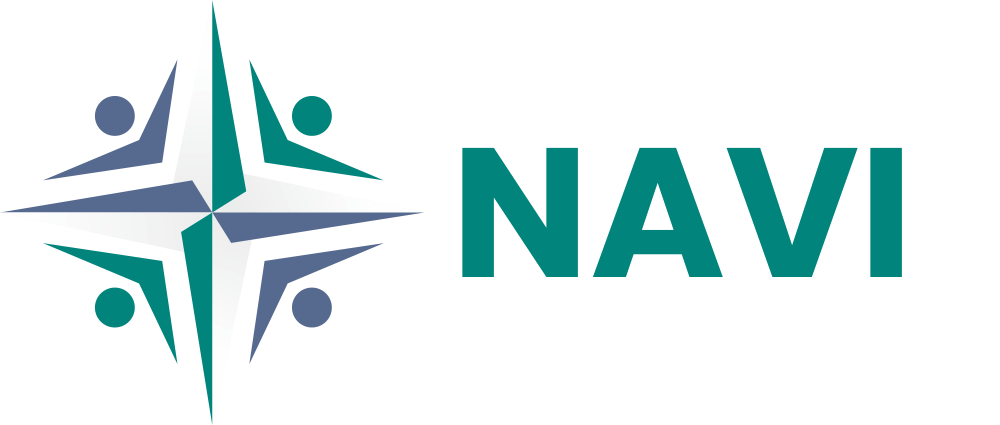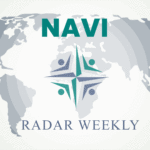Subscribe to NAVI Radar Weekly
Focus Point: Regional Security- European Security
The Russia-Ukraine energy divorce offers a chance for Europe to take control of its energy security |Atlantic Council
By Olga Khakova | 06.01.2025
Through wars and military aggression, Russian President Vladimir Putin has sought a legacy of imperialistic unification. Instead, his twenty-five-year reign leaves Russia without a vital revenue stream from pipeline gas sales to Europe—with the last of the transit agreements having expired on January 1 after Ukraine refused to renew it.
Russia’s state-owned energy giant Gazprom has seen billions in losses as transit through Ukraine shrunk from 130 billion cubic meters (bcm) in the early 2000s to a meager 15 bcm in 2023. While future major long-term deals with Kyiv are out of the question following Russia’s illegal and unjustified atrocities in Ukraine, the window is still open for Russia to sell smaller volumes of gas on the spot market.
This puts Europe at a crossroads. Russia had succeeded in fostering a narrative that Europe’s economic prosperity hinges on cheap Russian energy sources by strategically monopolizing the European gas market with discounted prices. This myth was busted when Europe paid a trillion dollars in 2022 to mitigate the energy crisis manufactured by Moscow to blackmail Europe to abandon Ukraine. Europe now has two main options. It can put an end to Russian piped gas in perpetuity and build a secure, resilient economy with alternative supplies. Or it can cave under economic pressures and backslide into dependency through a patchwork of deals with short-term discounts. Read more…
Focus Point: Regional Security- Middle East
Assad’s fall has created an opportunity for US-Turkey cooperation | Atlantic Council
By Rich Outzen |06.01.2025
The Atlantic Council’s article is discussing the unexpected collapse of Bashar al-Assad’s regime in Syria and the resulting opportunity for renewed US-Turkey cooperation.
The article argues that the shift in power, led by Ahmad al-Sharaa, alters previously conflicting US and Turkish strategies regarding Syria, creating potential for collaboration on issues like regional stability and counter-terrorism.
The author suggests that this realignment aligns with the incoming Trump administration’s foreign policy goals, highlighting shared interests and the importance of Turkey in achieving them. However, the article acknowledges the need for patience and trust-building to overcome past tensions and successfully navigate the complex situation in Syria. Read more…
Focus Point: Security and Defense Policy- Emerging Threats and Global Risks
The New Rasputins | The Atlantic
By Anne Applebaum |07.01.2025 | Subscription needed
For Americans, the merging of pseudo-spirituality with politics represents a departure from some of our deepest principles: that logic and reason lead to good government; that fact-based debate leads to good policy; that governance prospers in sunlight; and that the political order inheres in rules and laws and processes, not mystical charisma. The supporters of the New Obscurantism have also broken with the ideals of America’s Founders, all of whom considered themselves to be men of the Enlightenment. Benjamin Franklin was not only a political thinker but a scientist and a brave advocate of smallpox inoculation. George Washington was fastidious about rejecting monarchy, restricting the power of the executive, and establishing the rule of law. Later American leaders—Lincoln, Roosevelt, King—quoted the Constitution and its authors to bolster their own arguments.
By contrast, this rising international elite is creating something very different: a society in which superstition defeats reason and logic, transparency vanishes, and the nefarious actions of political leaders are obscured behind a cloud of nonsense and distraction. There are no checks and balances in a world where only charisma matters, no rule of law in a world where emotion defeats reason—only a void that anyone with a shocking and compelling story can fill. Read more…
Focus Point: Emerging Technologies & Data- Cyber Security
5 AI trends to watch in 2025 | GZero Media
By Scott Nover | 07.01.2024
It’s impossible to predict what lies ahead for 2025, but one thing is clear: AI’s influence on policy, national security, and everyday life will only grow more profound as the technology continues to evolve rapidly and assert itself into our work, education, and social life.
As the political landscape changes, these are the top trends that AI experts are watching this year:
- New administration, new rules
- An autonomous vehicle breakthrough?
- Military and national security acceleration
- US-China competition intensifies
- Silicon Valley gets cozy with Washington again. Read more…
Focus Point: Regional Security- Transatlantic Security/NATO
The Mayhem of Russia’s “Research” Fleet | War on the Rock
By Nurlan Aliyev | 07.01.2025
Russia wields a formidable capability to target NATO’s undersea infrastructure in critical regions such as the Baltic, Barents, and North Seas, as well as across the world’s oceans: its “research” vessels. These are ostensibly civilian ships used for scientific exploration that double as intelligence-gathering platforms. Equipped with advanced surveillance technology, these ships often operate near critical undersea infrastructure, raising concerns about covert espionage and sabotage capabilities under the guise of academic study.
Though this threat is making headlines in Europe today, it is far from new.
Russia’s maritime research vessels operate under two key organizations, each with distinct but often overlapping roles. The Hydrographic Service of the Soviet Navy, once known as the Safety of Navigation Directorate, was renamed the Main Directorate of Navigation and Oceanography in 1972 and later became the Navigation and Oceanography Directorate in 2006. This organization is responsible for providing navigational, hydrographic, hydrometeorological, and topographic-geodetic support for Russia’s navy and armed forces in oceanic and maritime zones.
However, the Main Directorate of Deep-Sea Research, a highly secretive unit within the Russian Defense Ministry, also plays a pivotal role. Often regarded as one of the most elite and classified branches of the Russian military, it is reportedly under the direct control of the minister of defense. Its known tasks include deep-sea exploration of the seabed, studying human physiology under extreme underwater conditions, recovering equipment from sunken vessels or aircraft, and conducting rescue operations. This directorate is widely believed to oversee deep-sea sabotage and intelligence missions, adding a shadowy dimension to Russia’s maritime operations. Read more…
Focus Point: Regional Security- Transatlantic Security
War Crimes and Accountability: The Law of Armed Conflict |USAWC
By Alexandra Meise and Ron Granieri I 07.01.2025
A U.S. Army War College podcast (Better Peace) features a discussion of the Law of Armed Conflict (LOAC), also known as international humanitarian law. Experts examine the LOAC’s development, origins in treaties like the Geneva Conventions, and its role in addressing war crimes, crimes against humanity, and genocide. The conversation highlights the challenges of enforcing LOAC in the midst of warfare, but emphasizes its crucial role in establishing accountability and protecting human life. Despite limitations, LOAC provides a framework for minimizing harm to civilians and non-combatants during armed conflicts. The podcast features Alexandra Meise, a leading expert in international law, and Ron Granieri, the podcast’s editor.
The text has been edited for length and clarity by the NAVI Research Institute. Read more…
Focus Point: Regional Security- European Security
From Maastricht to Cyberwar: Modernizing European Defense | NAVI Research Institute
By Mark Eyskens | 08.01.2025
Mark Eyskens, a distinguished former Prime Minister and Foreign Minister of Belgium, presents a compelling analysis in his article, “From Maastricht to Cyberwar: Modernizing European Defense,” published by the NATO Veterans Initiative (NAVI).
In this insightful piece, Eyskens masterfully connects the historical context of the Treaty of Maastricht with the current need for a modernized, unified European defense strategy, particularly in light of the rise of cyber warfare and its implications for European security. He addresses the ethical challenges posed by technological advancements, the complex interplay between technology, security, and geopolitics, and the need for a common European defense budget.
Furthermore, Eyskens discusses the potential for revitalizing the Western European Union (WEU) and strengthening existing EU defense institutions. His call for harmonized military capabilities, joint procurement, and increased cooperation underscores the urgency for a unified European approach to defense, making this article a call to action for strategic and collaborative defense policies in the face of evolving global threats. Read more…
Focus Point: Security and Defense Policy- Russia-Ukraine War
Russia’s economic dilemmas give Trump important leverage in negotiations on Ukraine. But will he use it? | Chatham House
By David Lubin | 08.01.2025
Putin’s government considers inflation an existential threat. But Trump’s preoccupation with China may prevent the US exploiting Russian weakness.
Chatham House published an article analyzing Russia’s economic vulnerabilities stemming from the war in Ukraine. High inflation, driven by an overheated economy and decreased hard currency inflows, forces Russia to maintain exceptionally high interest rates. This economic weakness presents significant leverage for the incoming Trump administration to pressure Russia regarding the conflict, potentially through stronger sanctions or energy policies.
However, Trump’s focus on countering China might limit his willingness to exert this pressure, jeopardizing potential progress on resolving the Ukraine conflict. The article ultimately questions whether Trump will prioritize pressuring Russia or fostering closer ties with Moscow. Read more…
Thank you very much for reading.
The NAVI Research Institute is the research division of NATO Veterans Initiative - NAVI that provides a unique perspective to transatlantic leaders and societies on peace and security through the lens of NATO's founding principles of rule of law, democracy, human rights, and individual liberties. The NAVI Research Institute was officially established by the NAVI Board on July 16th, 2023.

![NAVI-PROJE-[Recovered] Radar Weekly](https://nato-veterans.org/wp-content/uploads/2024/05/NAVI-PROJE-Recovered-696x392.gif)
